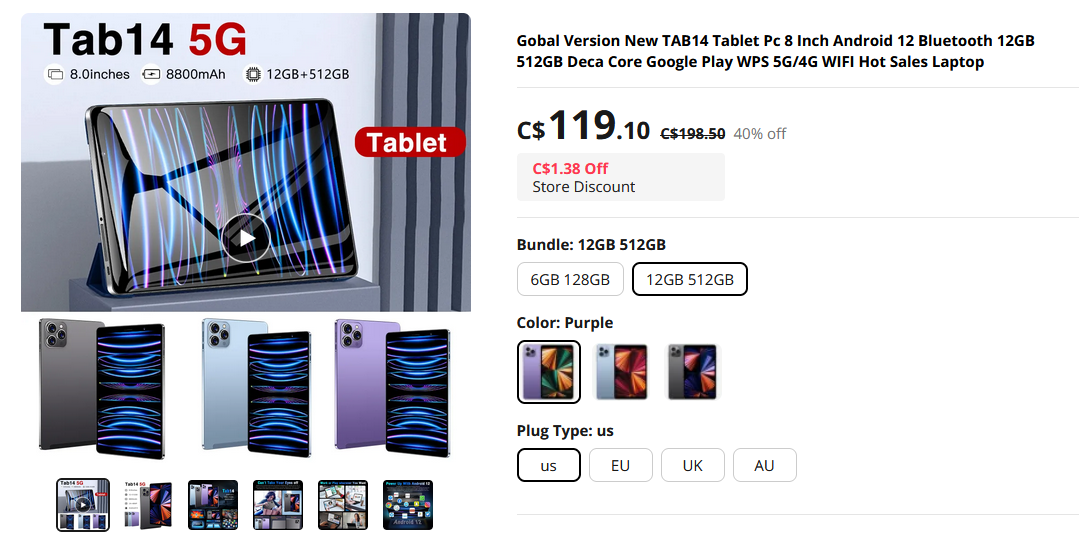She outputs more emissions by nearly double compared to the second place
Photo manipulation has been a thing since photos have been a thing
Hit Cancel instead of Reply after typing a response to that moron. 9/10 it's not worth the effort and your life will be better for having moved on.
I dunno what you guys are doing that makes your nextcloud die without touching it
Mine runs happily until I decide to update it
I think a scaling inheritance tax that accounts for all assets could work
There is a lot of misinformation being shared in this thread.
A good excerpt from Steve Gibson covering Topics on SecurityNow #935
What I do know, though, is that user profiling via tracking represents the height of privacy intrusion. As far as I know, an immutable record of every website I have ever visited is squirreled away in multiple massive hidden and inaccessible-to-me profiling databases. And I have zero control over that. That's the world we're in today. But if Topics succeeds, and Google would appear to be in the position to singlehandedly deliver its success, it is a far less intrusive profiling technology. And in addition to being a much weaker information gatherer, Google has chosen to provide its users complete control over the Topics their browser presents to the world, including turning it off altogether for full anonymity. I'll explain that further in a minute.
So if only on that basis, Topics at least represents a huge step in the right direction. Yes, by default some interest profiling remains. But the means of obtaining those significantly weakened profiles is no longer tracking. And users have complete visibility into their online profile and are able to curate, edit, and even delete any of it or all of it as they choose. So it's a compromise. But there are many websites begging for our support. My feeling is, if voluntarily letting them know something about who we are allows them to generate, as they claim, significantly more revenue from our visit, is that too high a price to pay? Again, it's an individual decision. But now, in a world with Topics, at least, it's one we're able to make.
...
Okay. So here's how Topics works. The essence of Topics are individual topic tokens - zero, one, or many - which are assigned to individual websites. For example, my GRC.com site might be associated with Computers and Electronics/Network Security, and Computers and Electronics/Programming, and Networking/Internet Security. So when someone visited GRC.com, their own web browser would record their interest in the topics associated with GRC.com, those topics, those three. But their visit to GRC.com itself would never be recorded other than in their regular local browser history as is always done. The only thing retained by the browser to indicate their interest in those topics would be those three numbered parameters.
For example, in Google's current 349-topic list, which they refer to as a "taxonomy," there's "Arts and Entertainment" as a general topic if nothing more specific is available. But then there's "Arts and Entertainment," and then under that "Acting and Theater," and "Comics," "Concerts and Music Festivals," "Dance," "Entertainment Industry," "Humor." And under "Humor" is the subtopic "Live Comedy." And it goes on like that with "Arts and Entertainment" having a total of 56 token entries before we switch to "Autos and Vehicles," which has 29 subcategories, which brings us to "Beauty and Fitness" and so on. You get the idea.
So here's how Google's specification explains this. They said: "The topics are selected from an advertising taxonomy. The initial taxonomy proposed for experimentation will include somewhere between a few hundred and a few thousand topics." They said: "Our initial design includes around 350." And I counted them, it's 349. "As a point of reference, the IAB Audience Taxonomy contains around 1,500 individual topics and will attempt to exclude sensitive topics." And they said: "We're planning to engage with external partners to help define this. The eventual goal is for the taxonomy to be sourced from an external party that incorporates feedback and ideas from across the industry."
...
Google explains: "The topics will be inferred by the browser. The browser will leverage a classifier model to map site hostnames to topics. The classifier weights will be public, perhaps built by an external partner, and will improve over time. It may make sense for sites to provide their own topics via meta tags, headers, or JavaScript, but that remains an open discussion for later."
There's literal audio recording of him acknowledging that he's fully aware he can't do whatever he wants with classified files.
As usual he's right until he proves himself wrong then claims he's right again.
I could be remembering wrong but Twitter was only worth $15B at best, and Elon bought it for $44B because he's that smart.
Exactly. You shouldn't get a bail-out because your risky investment failed.
I'd argue Youtube was better when creators weren't paid and people were just having genuine fun. The internet used to be free and filled with content by people with passion. Much like users and the current state of the fediverse.
Why should they earn less than somebody who is in-office? A remote employee costs less in physical resources like office space, heating and cooling, electricity and internet.
Ultimately it's the end result that matters, not where it's done.

Huawei Mate XT Ultimate